
Yesterday, I finished the article about intermittent fasting with a promise, that today I will show you how scientists test their claims, which you can find in that article.
As stated yesterday, somebody who eats within 10 hours has much better circadian rhythm whereas somebody who eats within 15 hours may not.
To test this idea scientist brought two identical groups of mice, born in the same parents, raised in the same room, same age. One group of mice got standard Western diet to eat whatever they wanted. And then the second group was trained to eat the same number of calories from the same food, but they had to eat everything within 8 to 12 hours at nighttime, when they supposed to eat.
They measured the food and mice carefully every week for almost 18 weeks. At the end of 18 weeks, the first group of mice, who ate randomly, were obese, where at the same time, they had a host of different diseases — they were really morbidly sick where the second group that ate within 8 to 12 hours were completely healthy.
But what is more surprising is this: If we take those morbidly sick mice and give them the same diet, same number of calories, and they have to eat only within 8 to 10 hours, they become healthy.
This was really earth-shattering eureka moment for Dr. Satchin Panda and his team, because for the first time in history of nutrition science, they found that when we eat is as important as what or how much we eat.
Well then, how do we translate this to humans?
First thing they wanted to know is when do people eat? To do that, they started a new study, where people usually signed up for the study at mycircadianclock.org and then since people love to take pictures, they asked them to take pictures of every single thing they eat or drink and they do the rest.
When the pictures come to their server, they add them on a timeline, so that is easy for them to figure out when people eat. People continue taking pictures for 2–3 weeks, so they can take nice snapshot of their food life during the weekdays and weekends.
As you can see for this particular person (picture below), he or she eats very randomly throughout the day. And if you look at the weekday and weekend pattern, those are very random. And if you combine weekday and weekend, there is another interesting thing that comes up. It appears as if person is on the East coast during the weekdays and and comes to West coast on the weekend, which is also very bad for our circadian clock.
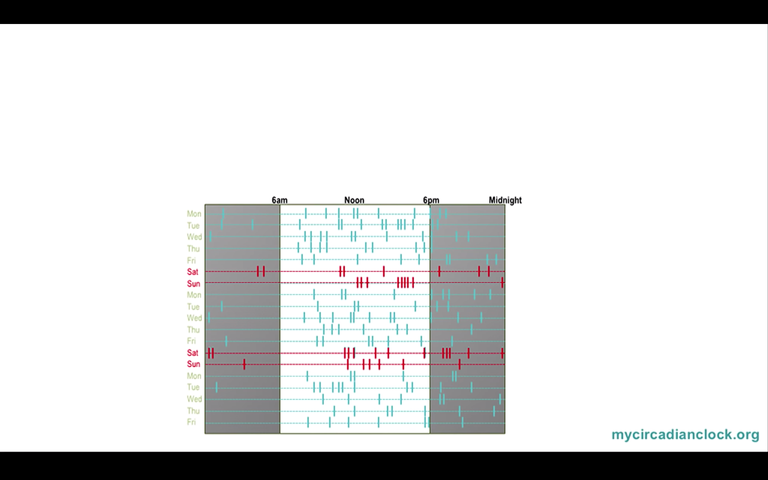
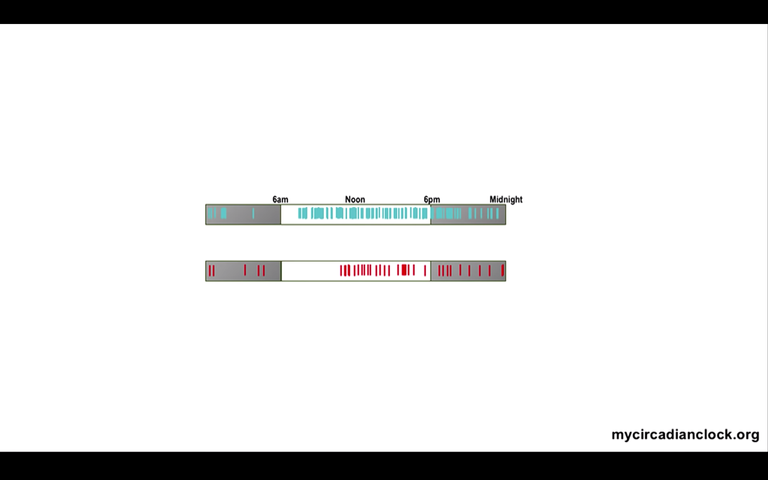
Now if you combine this data and plot it, as if we were looking at the clock, then you can see that this person eats almost around the clock. And he is not an outlier, actually.
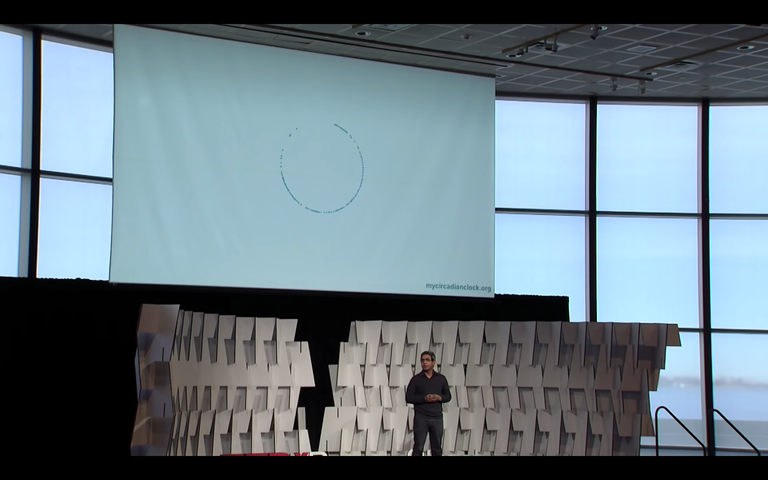
If we look at first 150 people who had signed up, nearly 50% of adults who actually have regular 8 to 5 jobs, eat for 15 hours or longer. So that means, if they have their first bite at 7:00 at the morning, the last bite or last sip of wine happens at 9:00 pm or later.
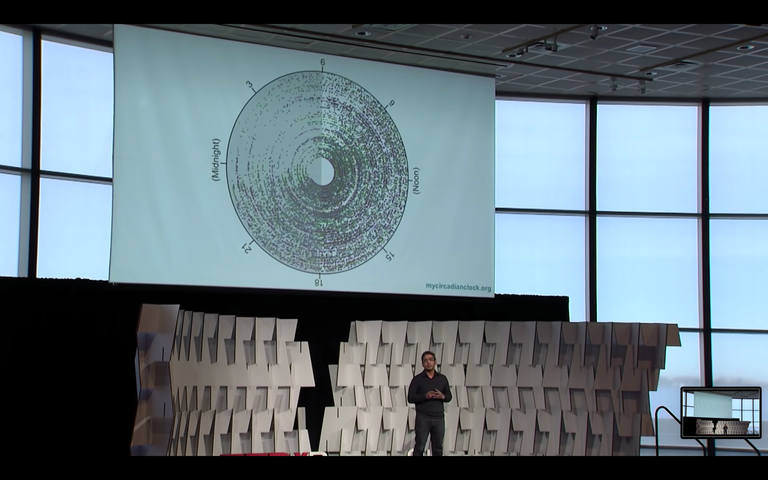
What is interesting is, if we feed mice even healthy diet, and they eat for 15 hours or longer, then slowly they become overweight, and they get all the diseases.
That is why, scientists asked very simple question. They told that people who were eating for 15 hours and were little overweight and ask them to eat whatever they want within ten hours of their own choosing, and they wanted to see, what happens to them. So within 3 to 4 months these people actually boosted up their circadian rhythm and they lost their excessive body weight that they had.
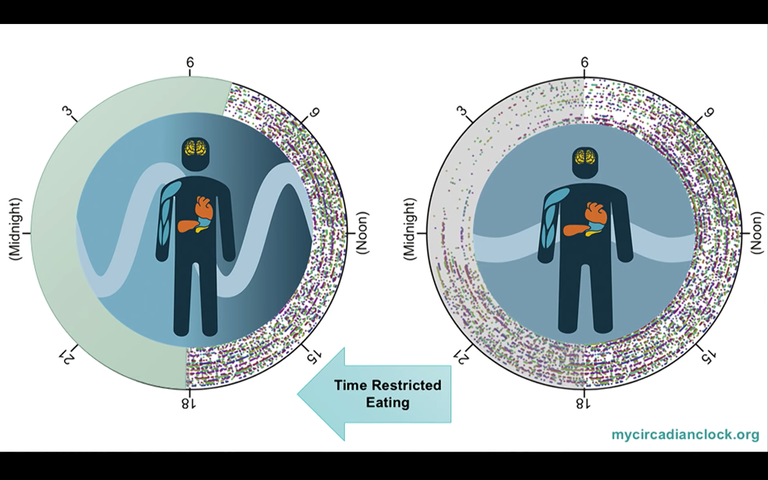
And over the last one year, there are thousands of people of people from all over the world, who are signing up either for this study or doing this by them selfs. They try to eat all their food somewhere between 8, 10 or 11 hours and when they do that after a few weeks, they are truly amazed by the untapped potential of the healing power of circadian rhythm. Almost all of them loose little bit of weight, but as they continue, they actually feel much better, more energetic throughout the day. They sleep much better at night and their mood is much better and they are very sharp. And slowly after months, they suffer less from different diseases of the gut, heart, immune system, diabetes and even some form of mental diseases.
So is the intermittent fasting something, that you will give a shot? Let me know in comments below ;-)
Thanks for reading!